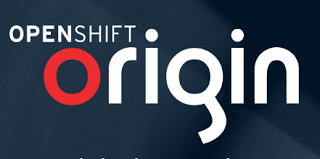This post was originally written by Markus Eisele in his blog: http://blog.eisele.net/2015/10/openshift-quick-tip-port-forwarding.html
 Just a short tip today, but I was playing around with the all-in-one vm from the OpenShift team and wanted to use the port-forwarding feature for a quick check of a running database. You can use the CLI to forward one or more local ports to a pod. This allows you to listen on a given or random port locally, and have data forwarded to and from given ports in the pod.
Just a short tip today, but I was playing around with the all-in-one vm from the OpenShift team and wanted to use the port-forwarding feature for a quick check of a running database. You can use the CLI to forward one or more local ports to a pod. This allows you to listen on a given or random port locally, and have data forwarded to and from given ports in the pod.
But whenever I tried to execute:
<code>oc port-forward mysql-2-zjx6u 3306:3306</code>
It looked like it worked until the very first time I tried to use the tunnel:
I1020 11:38:54.754799 8356 portforward.go:227] Forwarding from 127.0.0.1:3306 -> 3306
I1020 11:38:54.757299 8356 portforward.go:227] Forwarding from [::1]:3306 -> 3306
I1020 11:39:10.824839 8356 portforward.go:253] Handling connection for 3306
E1020 11:39:10.833340 8356 portforward.go:312] An error occurred forwarding 3306 -> 3306: Error forwarding port 3306 to pod mysql-2-zjx6u_myfear, uid : Unable to do port forwarding: socat not found.
Turns out, that the needed socat package isn't installed on the all-in-one-vm. In order to fix that, you have to ssh into the instance:
<code>vagrant ssh</code>
And install socat:
<code>sudo /bin/yum install socat</code>
After that you're able to use the tunnel and forward ports to your OpenShift pod.
Further Information:
- Get started with the Contributors Guide
- Fork the repository.
- Read the Origin 3 documentation.
- Follow @OpenShift on Twitter
Author
Markus Eisele
Developer Advocate
JBoss Middleware at Red Hat
@myfear
http://blog.eisele.net/
About the author
Markus Eisele is a Red Hat Developer Tools Marketing Lead at Red Hat. He is also a JavaTM Champion, former Java EE Expert Group member, founder of German JavaLand and a speaker at Java conferences around the world.
More like this
Browse by channel
Automation
The latest on IT automation for tech, teams, and environments
Artificial intelligence
Updates on the platforms that free customers to run AI workloads anywhere
Open hybrid cloud
Explore how we build a more flexible future with hybrid cloud
Security
The latest on how we reduce risks across environments and technologies
Edge computing
Updates on the platforms that simplify operations at the edge
Infrastructure
The latest on the world’s leading enterprise Linux platform
Applications
Inside our solutions to the toughest application challenges
Original shows
Entertaining stories from the makers and leaders in enterprise tech
Products
- Red Hat Enterprise Linux
- Red Hat OpenShift
- Red Hat Ansible Automation Platform
- Cloud services
- See all products
Tools
- Training and certification
- My account
- Developer resources
- Customer support
- Red Hat value calculator
- Red Hat Ecosystem Catalog
- Find a partner
Try, buy, & sell
Communicate
About Red Hat
We’re the world’s leading provider of enterprise open source solutions—including Linux, cloud, container, and Kubernetes. We deliver hardened solutions that make it easier for enterprises to work across platforms and environments, from the core datacenter to the network edge.
Select a language
Red Hat legal and privacy links
- About Red Hat
- Jobs
- Events
- Locations
- Contact Red Hat
- Red Hat Blog
- Diversity, equity, and inclusion
- Cool Stuff Store
- Red Hat Summit

